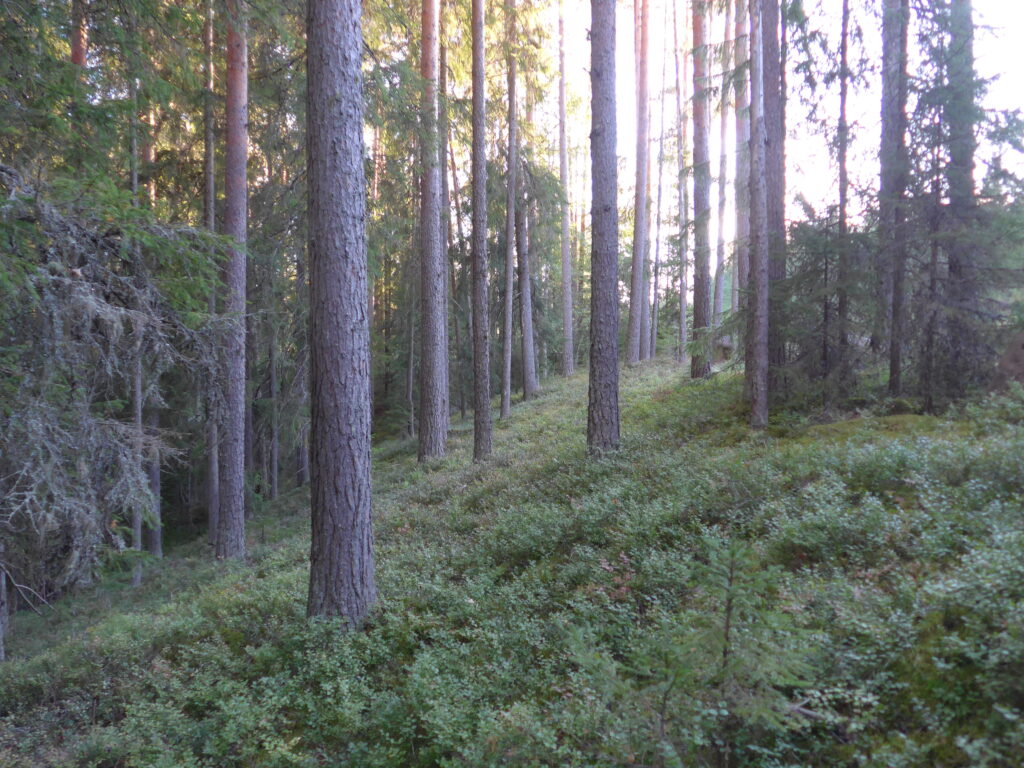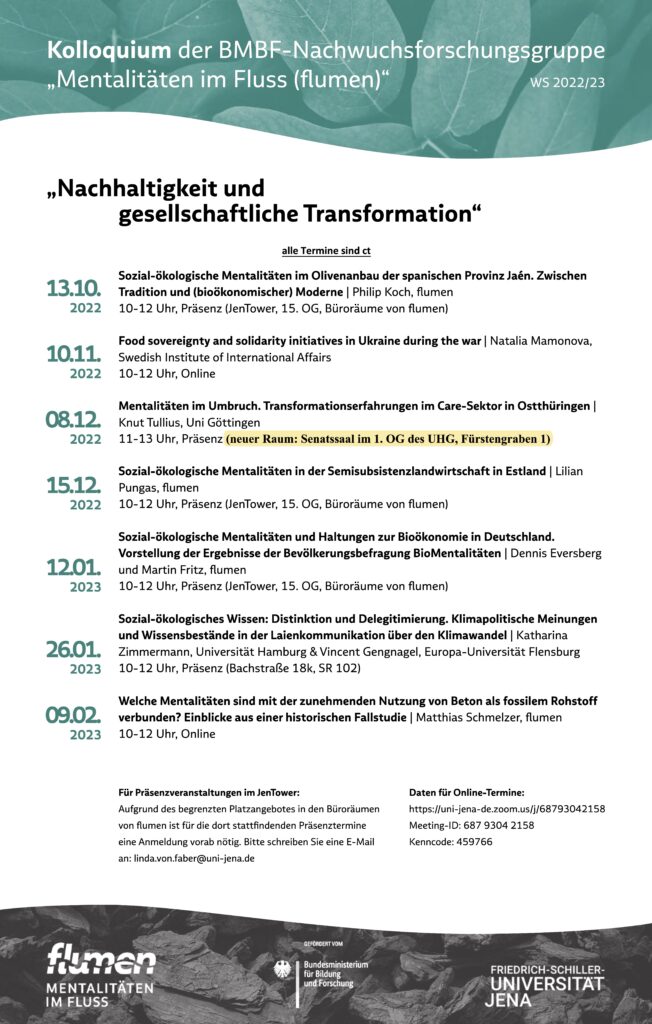
For her “Qualitative case study on forest and timber industries in Finland”, Jana Holz has interviewed actors in the timber industry in central Finland several times in recent years about their work, as well as people from retail, politics and NGOs about their nature relations. From May 15 to 17 and on May 22, 2023, she will present the results of her studies on site in Jyväskylä and Äänekoski in workshops of different formats:
The first will be an afternoon workshop in cooperation with the Finnish Forestry Museum Lusto in Äänekoski on May 15, 2023, aimed at interviewees and interested parties from the region. At the beginning of the workshop “Future Heritage Äänekoski” Jana Holz will present her research results, based on these the staff of the Lusto Forest Museum will guide through the event.
On May 16 to 17, Jana Holz will organize a scientific workshop at the University of Jyväskylä in cooperation between flumen, the “Human-Forest Relationship Research Club of the Finnish Society of Forest Science“, the “JYU.Wisdom – School of Resource Wisdom” and the “SOBIO network“. The multidisciplinary workshop is aimed at scientists from the social sciences, humanities and natural sciences and is entitled: “(BIO)DIVERSITY IN THE FOREST CONTESTED FORESTS, HUMAN PRACTICES, AND FUTURE CHALLENGES”. At the end of the workshop Jana Holz will give a presentation in the open colloquium of the “JYU.Wisdom – School of Resource Wisdom” on “Social relationships with nature and the Finnish forest-based bioeconomy”.
As a conclusion of the transfer activities in central Finland, Jana Holz will visit a class of high school students in Äänekoski on May 22. There, the concept of the social nature relationship space will be presented and introduced to the students through a simulation game.
At the end of the transfer stay in Finland, Jana Holz will host an event on “Human-Forest Relationships as part of future sustainability solutions” as part of the “Sustainability Science Days” at the University of Helsinki from May 24 to 26, in which scientists from Finland and Belgium, among others, will present research results on forest-human relations, digitalization and forest experience, forests in cities and forest bioeconomy. The “Sustainability Science Days” are aimed at an interested specialist audience from science and practice.


